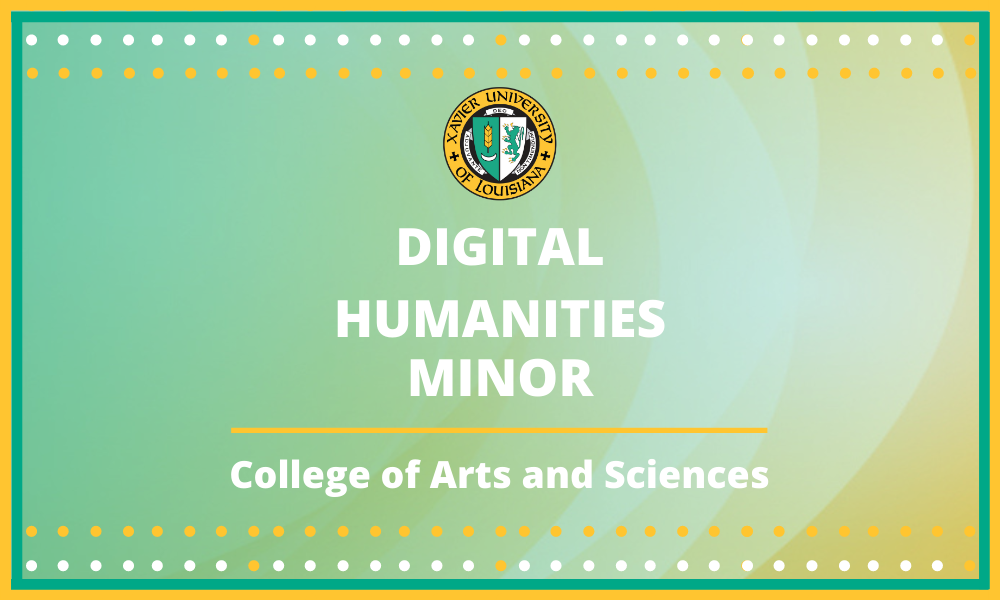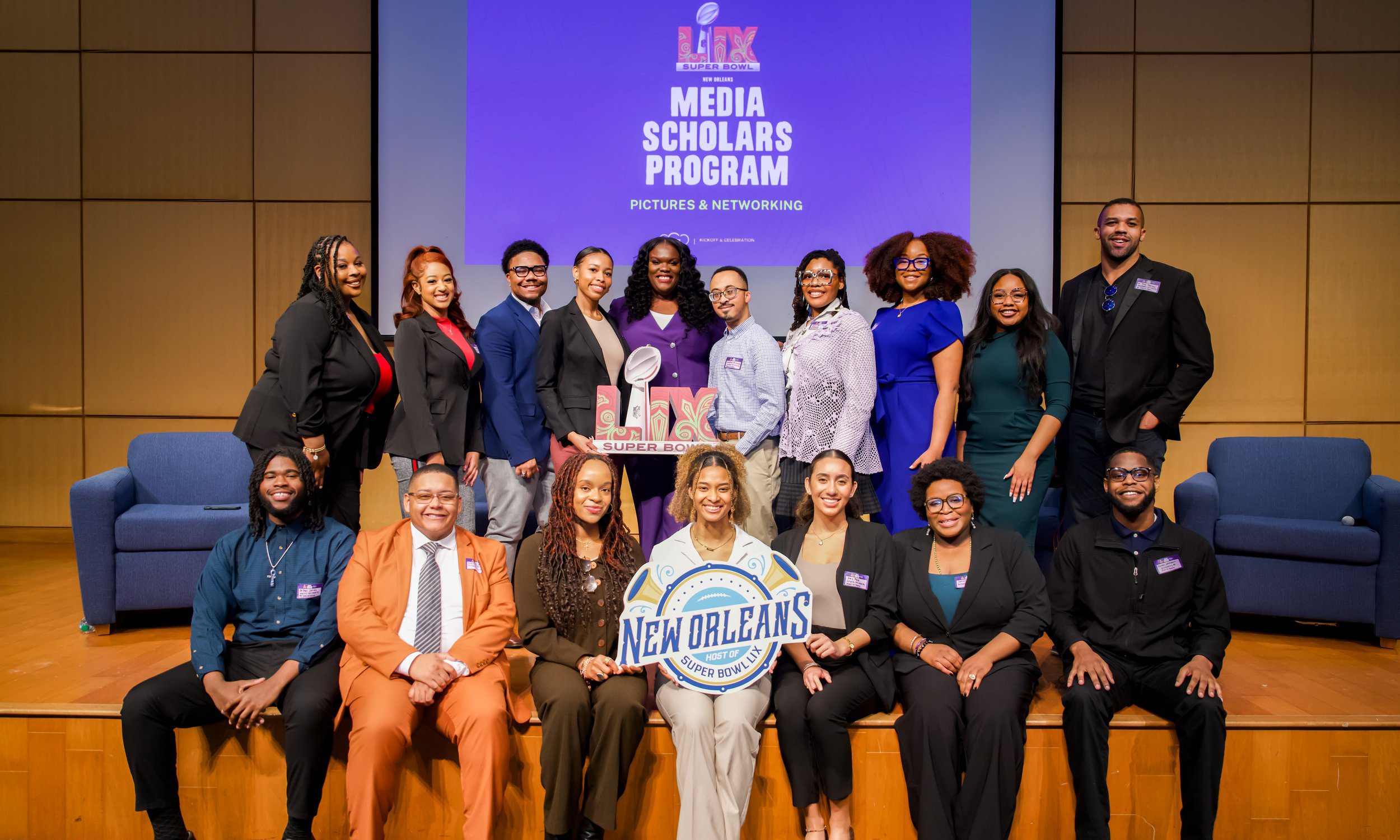Xavier University of Louisiana Launches Digital Humanities Minor

Considering recent events in the United States and around the world, Xavier continues to take seriously the responsibility of training the leaders of tomorrow and preparing them for the next steps in their careers. The skills acquired from the Digital Humanities minor will equip students with the emerging skills required to work in 21st century cultural organizations.
The field of Digital Humanities is designed to teach students the skills of the humanities: critical thinking, persuasive communication and engagement with humanist subject matter and digital platforms prevalent in humanist institutions such as museums, social justice nonprofits, arts and cultural foundations.
It’s an 18-credit hour minor that consists of one introductory course (1000 level), two skills courses (2000 level), and three applied courses (3000-4000 level) that can be integrated into students' four-year undergraduate curriculum or completed altogether in two years. Both online and in-person classes are available.
Digital Humanities courses at Xavier are grounded in data science and social justice. The new minor involves; a) using digital technology connected to humanities’ urgent narrative projects including collecting, interpreting and preserving information from our diverse populations before these stories become inaccessible; b) the need in the technology sector for a diverse workforce with skills in the humanities and new digital platforms; and c) the social justice dilemmas of data science, e.g., the case of bias of algorithms.
“Educating students in transdisciplinary thinking and preparing them for the workforce of the future should better equip students to compete for the jobs that require the skill sets that are offered in the Digital Humanities,” said Dr. Camellia Moses Okpodu, Dean of the College of Arts and Sciences. “The humanities are still the cornerstone of and essential to our development of perspective.”
Systemic racism gained recent attention in our country due to the COVID-19 health pandemic that disproportionately affected people of color, as well as an onslaught of brutal police footage trending on social media. These issues are not up for debate. Data from research carried out in the humanities could be the resolution to century-old problems like racial inequality, gender pay gaps and more. The Digital Humanities program at Xavier challenges students to change their perspective by conducting tangible research and analyzing data that forces the questions no one ever thought to ask.
“This minor can help students analyze problems in different ways, whether in a clinical setting or research. Being able to use data in a way that answers their own questions is essential to solving problems and developing new ideas. We often fail to realize that everyone’s questions will be different because of characteristics like background, race or religion. Anything can be data, and all data can be analyzed. From our responses to trending topics down to the reasons we see certain behaviors, Digital Humanities allows students to study large patterns to establish their own conclusions. We'll give them the tools, and then they will be able to communicate what they’ve analyzed,” said Dr. Kim Vaz-Deville, Professor of Education and former Associate of the Dean of the College of Arts and Sciences. Vaz-Devile shepherded the minor for the College with generous contributions from the Andrew Mellon Foundation and a Humanities Connections grant from the National Endowment for the Humanities. These awards made possible the support of faculty development to prepare to offer courses in the new minor.
“I’m interested in Xavier being the number one institution and having students who can compete with any candidate, HBCU graduate, or not. We know this gives Xavier students a competitive edge. Not many other universities and specifically HBCUs have this program, so we get to be one of the thought leaders in this area of study,” said Dr. Okpodu.
About Xavier University of Louisiana
Being America’s only historically Black and Catholic University is only the first among many distinctions that have set Xavier University of Louisiana apart for more than nine decades. Despite its relatively small size (3,300 students), Xavier is a nationally recognized leader in the STEM and the health sciences, producing more African American students who graduate from medical schools each year than any other university in the United States. Its College of Pharmacy is among the top producers of African American pharmacists.
Its liberal arts-based programs in such areas as art, business, education, psychology, and political science – as well as recent additions in bioinformatics, data science, neuroscience, crime and social justice, and jazz studies – offer students an unbeatable combination of traditional classroom study, hands-on research, service-learning opportunities, and life experiences. The winning Xavier formula to provide students with a well-balanced curriculum and an environment that nurtures their intellect and feeds their souls.
For more information about Xavier University of Louisiana, visit us online at www.xula.edu or follow us on Facebook, YouTube, or Twitter @XULA1925. To book interviews and/or to speak with our experts in the field of pharmacy, education, premed, public health, science, technology, math, business, English, communications, and the arts, contact Chelsea Cunningham at (504) 520-5425 or ccunnin5@xula.edu.



